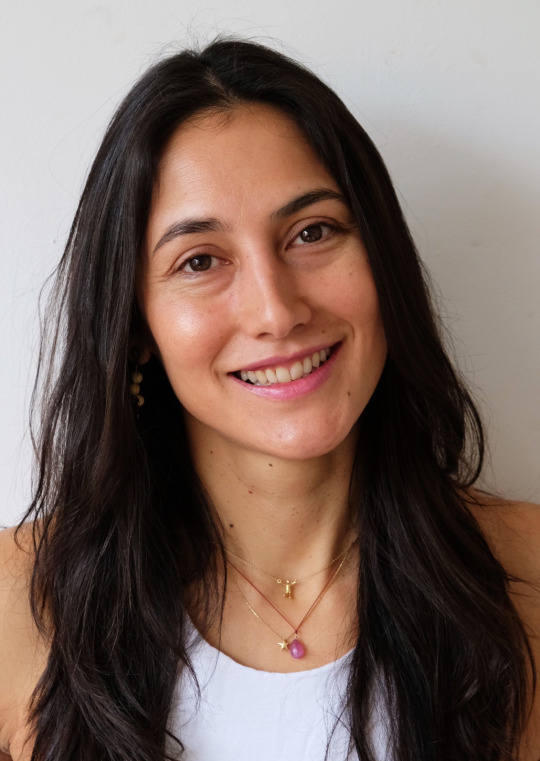#cristina da silva
Text
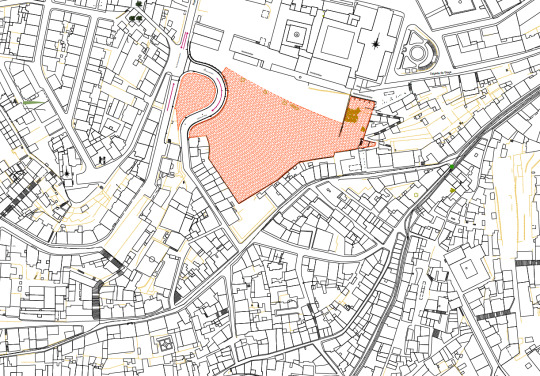
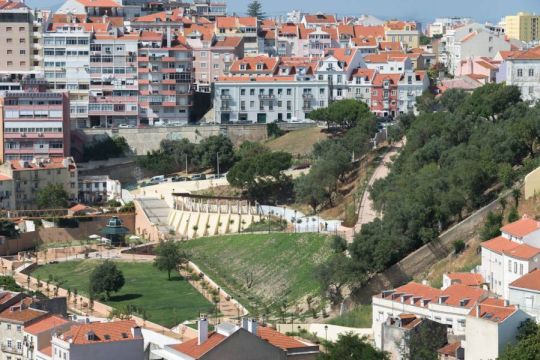
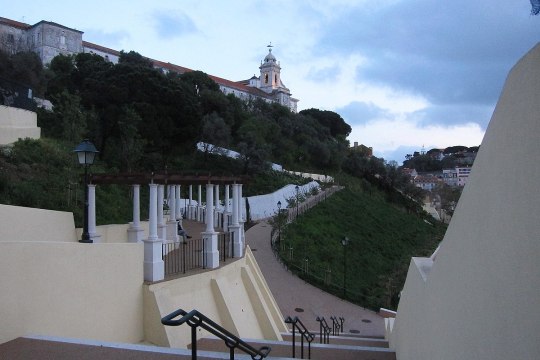
Cristina Duarte+José Cornelio da Silva, Jardim da Cerca da Graça, 2012
3 notes
·
View notes
Text
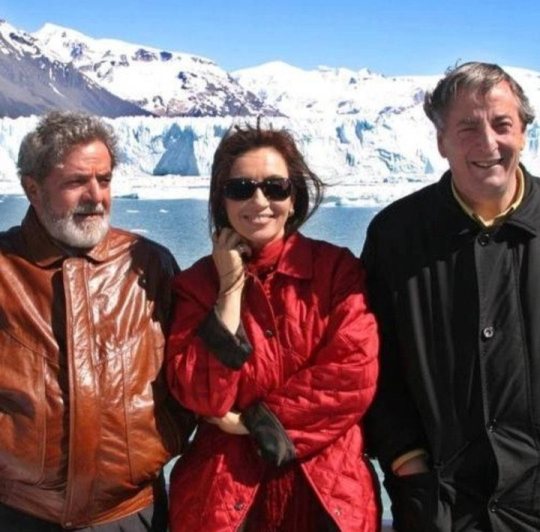
slay
21 notes
·
View notes
Text
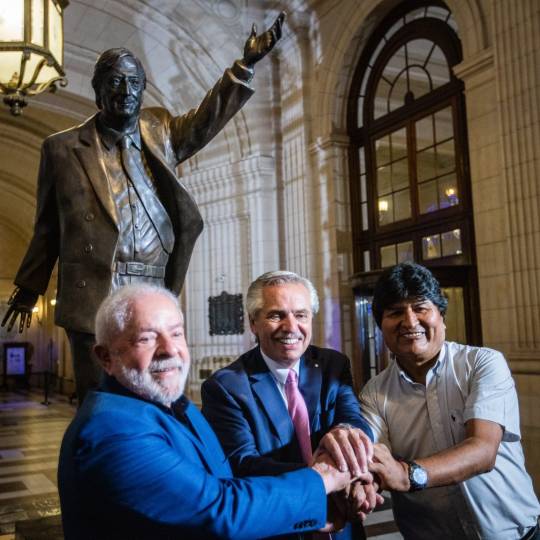
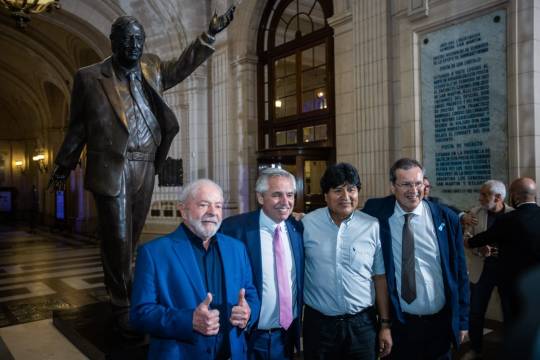
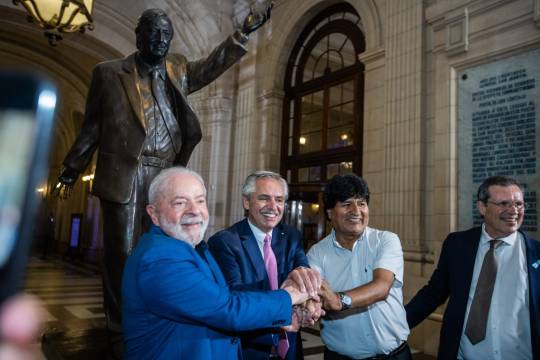
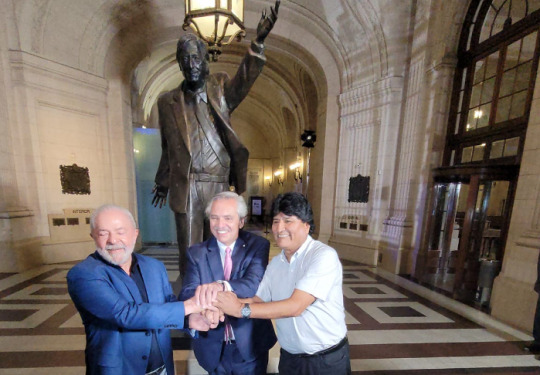
Luiz Inacio Lula da Silva, Alberto Fernandez and Evo Morales standing in front of a statue of former Argentinian President Nestor Kirchner, at the Nestor Kirchner Centro Cultural Kirchner in Buenos Aires, Argentina, 23 January 2023
#Luiz Inacio Lula da Silva#Lula da Silva#Lula#Brazil#Brasil#Evo Morales#Bolivia#Alberto Fernandez#Nestor Kirchner statue#Argentina#also Cristina Fernandez de Kirchner met Honduran President Xiomara Castro
2 notes
·
View notes
Text
Os melhores discos nacionais de 2022
Estas foram as nossas escolhas nacionais para 2022, num ano marcado pelo jazz e belas belas vozes femininas.
[vc_row][vc_column][vc_column_text]Num ano em que a redacção Altamont pensaria que não haveria tantos discos para votar, eis que batemos o recorde no volume. No ano passado já tínhamos chegado aos 51 mas em 2022 subimos a parada e chegaram 68 álbuns ao nosso top, que volta a ser bastante diverso. Ao contrário de outros anos, não houve nomes tão consagrados mas é de salutar o regresso de Mário…

View On WordPress
#A Garota Não#amélia muge#ana moura#chica#club makumba#Cristina Branco#éme#Filho da Mãe#Fumo Ninja#gala drop#golden slumbers#Goodbye ÖLGA#João Paulo Esteves da Silva#manuel fúria#Maria Reis#mário laginha#Moxila#Papillon#Ricardo Toscano#serge fritz#Surma#top discos nacionais 2022#you can&039;t win charlie brown
4 notes
·
View notes
Text
Attempted Kirchner assassination prompts Bolsonaro, Lula security re-think
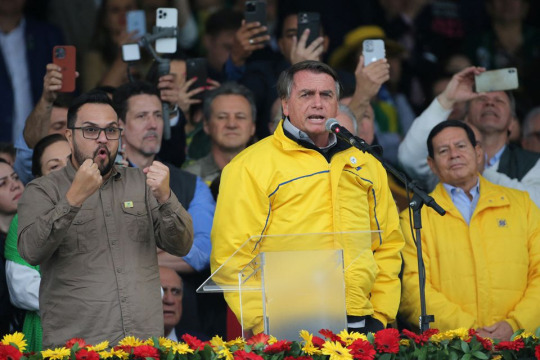
The attempted assassination of Argentine Vice President Cristina Fernandez de Kirchner by a Brazilian has forced Brazil's main presidential candidates to re-evaluate their security arrangements ahead of the Oct. 2 vote, sources said on Friday.
Kirchner escaped unharmed on Thursday after a 35-year-old man of Brazilian origin fired a loaded gun, just inches (cm) from her head, that failed to go off. The shooter's nationality underlined growing concerns about political violence in highly polarized Brazil in the lead-up to its election.
"This violence and political hatred that has been incited by some people is a threat to democracy in our region," said Brazil's leftist front-runner Luiz Inacio Lula da Silva in a tweet on Friday morning, in what amounted to a veiled dig at his rival, President Jair Bolsonaro.
A far-right former army captain, Bolsonaro has urged his followers to arm themselves ahead of the election or risk being "enslaved." Critics say his attacks against Lula, whom he labels a corrupt communist, have contributed to the fraught atmosphere.
Continue reading.
Note from the mod: About the "I almost died in 2018 and I didn't see the left worrying about me" quote -- Bolsonaro's stabbing was actually staunchly condemned by politicians all across the ideological spectrum, even those with strong grievances against him.
#brazil#politics#argentina#cristina kirchner#brazilian politics#brazilian elections#brazilian elections 2022#luiz inacio lula da silva#jair bolsonaro#mod nise da silveira#image description in alt
3 notes
·
View notes
Text
Medios estatales en América del Sur: política antes que tecnología
Medios estatales en América del Sur: política antes que tecnología
La gestión de medios públicos en el entorno digital bajo los gobiernos kirchneristas en la Argentina, de los gobiernos petistas en Brasil y de Rafael Correa en Ecuador es analizada en el artículo académico “Medios estatales en América del Sur: lo político antes que lo tecnológico”, escrito por los investigadores Fernando Krakowiak, de la Universidad de Buenos Aires (UBA) y Guillermo Mastrini, de…
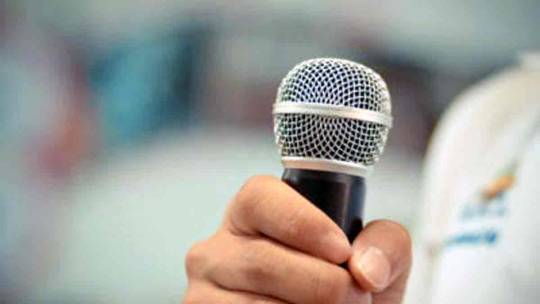
View On WordPress
#América del Sur#Argentina#Brasil#Cristina Fernández de Kirchner#Dilma Rousseff#Ecuador#Fernando Krakowiak#Guillermo Mastrini#Lula da Silva#Medios#Medios estatales#Néstor Kirchner#Política#Rafael Correa#Tecnología#UADE#UBA#Universidad Argentina de la Empresa#Universidad de Buenos Aires#Universidad Nacional de Quilmes
2 notes
·
View notes
Text

Fernando Pellon, Paulinho Lemos, Synval Silva, Nadinho da Ilha & Cristina Buarque
Cadáver Pega Fogo Durante o Velório
1983
0 notes
Text
GOLPE SCAMMERS DO PEDIDO DE DINHEIRO PARA A LIBERAÇÃO DO SERVIÇO E DEPOIS PARA SER LIBERADO DA PRISÃO NA FRONTEIRA - SCAMMERS MICHAEL BARRY PUGGA - GOLPE DE 200.000,00
Relato da Vitima
Conheci Michael Barry Pugga em janeiro de 2021 ele se dizia médico (cardiologista) da marinha do Canadá,tinha uma filha 8 anos se chamava Maria ,era viúvo fazia uns dois anos ,começamos a conversar foi quando ele decidiu vir para o Brasil me conhecer e supostamente a noiva dele,foi quando ele me pediu pra mandar um email pra Marinha pedindo a liberação dele pro nosso…

View On WordPress
#Estelionato Sentimental#Fabiana Nonato da Silva#Gabriele Cristina Bella Cruz#Golpes de romance na internet#Romance scammers#Scammers Nigerianos
0 notes
Text
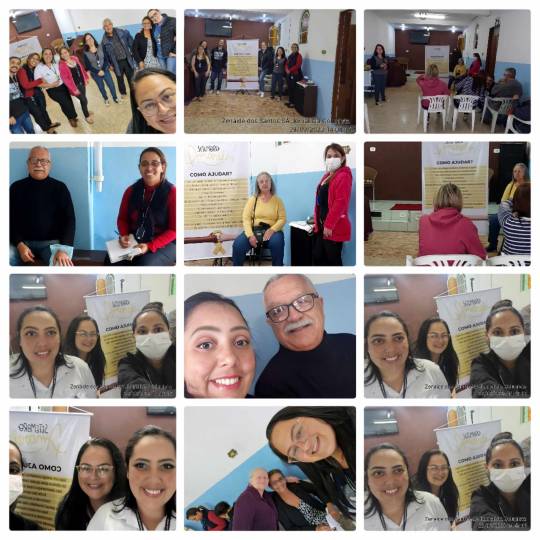
Hoje, dia 28 de setembro, a equipe da Unidade Básica de Saúde (UBS) Jardim Jovaia realizou uma tarde com a importante ação voltada para a saúde mental no Jardim Testae.
O evento ocorreu na Igreja de Deus em Cristo Unindo Nossas Forças, localizada no Jardim Testae.
A equipe envolvida na iniciativa contou com os servidores Miguel da Silva, enfermeira Kelly Cristina Sellan, auxiliar de enfermagem Sirlene Portilho e a Dra. Adriana Amâncio ACS's. Além disso, estiveram presentes os Agentes Comunitários de Saúde Solange Paiva de Morais, Thielle Galdino dos Santos, Débora Priscila de Moraes e Sérgio Ramos de Morais Junior.
Como anfitriões, o Pastor José Ferreira da Silva e sua esposa, a Missionária Maria José, que apoiaram a ação.
7 notes
·
View notes
Note
ADM desculpa te incomoda mais você pode fala algumas curiosidades da Mery
ADM: nossa kkk ninguém tinha me perguntado isso antes kkk, ok
Mery tem 19 anos
Nasceu no dia 10/03/2000
Nasceu no rio de janeiro
Nome: Mery Cristina da Silva
Na história de Mery (que ainda não está pronta) ela foi caçada dentro de casa pelo próprio pai dela. O pai dela dava vários remédios para ela, que deixavam ela muito mal e as vezes esses remédios causavam uns problemas nela. Esse remédio que ele dava, foi a causa da surdez dela (sim, dar pra fica surdo, ser você toma constantemente uma sustância muito alta), mas dps a Mery conseguiu fugir do pai dela. Foi meio difícil, pelo fato dele está caçado ela pela casa inteira
A mãe de Mery morreu quando ela nasceu, então ela nunca conheceu sua mãe. Ela apenas via ela em fotografias
Mery tem uma besta como arma, ela é muito boa de mira. Quando ela era mais nova, ela brincava com alguns Estilingue. Por isso ela e boa de mira
Mery tem uma cicatriz na bochecha que chega até seu nariz
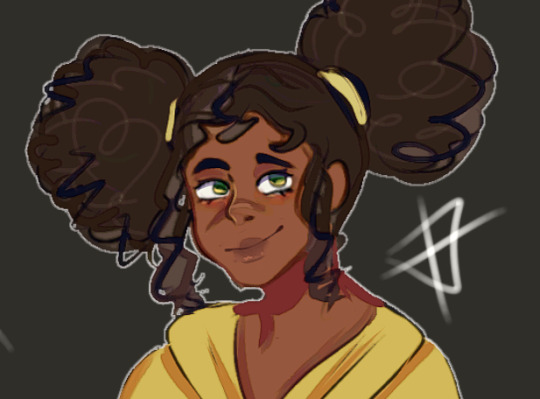
Mery ama sapos, e o animal favorito dela. Ela sempre tenta sequestra alguns sapos, mas a Deliah não deixa ela fazer isso.
Mery tem 1,59 (rebaixada)
Como não é muito segredo, ela namora o famoso machista racista homofóbico 🎉Sergei🎉
Mery tenta mudar ele o máximo que ela pode
Mery tem insegurança do seu cabelo. Ela não gosta do proprio cabelo, pelo fato dela ter sofrido bullying quase a vida escolar inteira dela. Eles sempre chamavam ela de nomes horríveis, e isso deixava a Mery muito triste. Por isso ela tem insegurança do cabelo
Mery e muito carinhosa, ela seria capaz de trata você que nem um bebê. Ela gosta de ajudar os outros e sempre está disposta a fazer tudo por aquele amigo/a
Mery gosta de músicas calmas, ela preverem ouvir músicas que deixem ela bem calma (pra você que está ser perguntado "como ela ouve", bom, a Deliah fez um aparelho pra ela ouvir)))
#creepypasta#creepy photography#oc creepypasta#ask#ask blog#ask anything#ask open#creepypasta blog#ask creepypasta
4 notes
·
View notes
Text
TeleSur - "Nicaragua... “Still, It Moves...”"
The popular economy provides 70 percent of the country's employment and has made it possible for the country to produce 90 percent of its own food.
Galileo may or may not truly have said “Still, it moves...” on escaping condemnation by the Holy Inquisition for asserting that the Earth moves around the Sun. But the saying certainly applies in the case of Nicaragua's persecution by the sadistic neoliberal Inquisition of Western countries whose oligarchs, corporate and alternative media and NGO hangers-on still believe they are the center of the universe.
Last July 28th, Nicaragua threw that delusion in the face of the US political leadership when Foreign Minister Denis Moncada Colindres formally refused the routine agrément for Hugo Rodriguez, the proposed new US ambassador to Nicaragua.
At his senate confirmation hearing, Rodriguez openly declared his intention to attack Nicaragua's economy and institutions. Among other things he declared that he would work to exclude the country from the Central American Free Trade Agreement.
He also promised to seek to isolate Nicaragua internationally so as to obtain the release of criminals the US government paid via its non profit network to overthrow Nicaragua's government in 2018 and to try disrupting the country's national elections in 2021. He even declared that as ambassador he would contest the development of Nicaragua's sovereign relations with China and Russia.
The demented United States ruling classes took for granted that they could impose on Nicaragua an ambassador publicly committed to hurting that country's economy, institutions and vital interests.
Why would they not? Over the last twenty years or so, they have destroyed Haiti and Honduras, persistently attacked Bolivia, Cuba, Nicaragua and Venezuela and fomented government ousters in Paraguay and Brazil.
They drove the lawfare persecution against Jorge Glas and Rafael Correa in Ecuador, against Lula da Silva in Brazil, and too against Cristina Kirchner in Argentina while ardently nurturing the corrupt government of Mauricio Macri. For decades they supported the fascist narco-terror regime in Colombia, now a key partner in the region of the North Atlantic Treaty Organization.
All these have been among the key elements of what the US leadership, diplomats and media call "promoting democracy" in Latin America and the Caribbean. In Europe, NATO's formula was: "Keep Russia, out, the Americans in and Germany down".
Current US policy in Latin America and the Caribbean is similar: "Keep China out, USA in and regional powers down". Nothing could be clearer as to what democracy means for the US government and its corporate owners.
This policy formula derives from the Western Inquisition's dogma that the world revolves around the North American, European and allied oligarchies with no possible alternative. In Latin America now, finally, other regional leaders like Mexico's Andres Manuel López Obrador are following the lead of Fidel and Raul Castro and revolutionary successors Miguel Díaz Canel and his comrades, of Evo Morales and his comrades in Bolivia, of Chávez, Nicolás Maduro and Venezuela's Bolivarian leadership, of Daniel Ortega and Rosario Murillo in sandinista Nicaragua and Caribbean island nation leaders like Ralph Gonsalves. They all declare openly what Galileo could only mutter under his breath. In this case, the world does not turn around the West.
As Ralph Gonsalves put it recently in Managua, "I come from a small Country in our Hemisphere, but this small Country believes and subscribes to large Principles: The Defense of Sovereignty and Independence, non-interference and non-Intervention in our own affairs; so as to able to lead ourselves and our Civilizations onward, and to be able to walk together with all the Peoples around the World, in friendship but not in subordination. [...]
People in Nicaragua have every reason to have faith in Ralph Gonsalves' vision of a Better World. In 2022, Nicaragua's economy has performed successfully despite severe losses resulting from the 2018 failed coup attempt and the drastic global economic contraction through 2020, compounded by significant losses from two hurricanes in November that same year.
Nicaragua's GDP grew by almost 10% in 2021 and is on track to grow again by well over 5% this year resuming the trend established in the years before 2018. Daniel Ortega, Rosario Murillo and their government team enjoy over 70% approval for their policies.
By a very long way Nicaragua has the lowest percentage of people disposed to emigrate compared to its neighbors, including Costa Rica where poverty is now running at well over 30% of its population.
Nicaragua has the best public health system in Central America, one which is completely free. The country has a free national education system from preschool up to university including a massive comprehensive national vocational technical training program.
University education includes outreach programs to rural areas across the country. That democratization of health care and education extends deep into the grass roots of the economy, ensuring credit, technical support and marketing accompaniment for small farmers and small and micro-businesses that private banks would never finance.
Nicaragua's popular economy provides 70% of the country's employment and has made it possible for the country to produce 90% of its own food. Nicaragua ranks first in Latin America and the Caribbean for gender equality. It is the safest country in Central America, with the lowest murder rate and the lowest rate of car theft.
In terms of infrastructure Nicaragua has the best highway system in Central America. Around 99% of the country has electricity, 93% of the population have access to clean drinking water. Every day of classes, 1.2 million schoolchildren receive a free school meal.
In terms of restitution of property rights, over 530,000 families have received free legal title to their property since 2007. In 2021, the government completed extending legal title to 25 Properties of Original Peoples, which cover 315 communities with 41,000 families, over an area of 38,000 square kilometres which is 30% of the national territory of around 130,000 km2.
Nicaragua's laws guaranteeing regional autonomy to the country's indigenous and afrodescendant peoples are the most innovative and far-reaching in the hemisphere. Thus Nicaragua's achievements put to shame much wealthier countries, like Argentina, Colombia or Chile or the US itself, whose people are told they cannot have free health care.
The United States and its European and other allied countries are sinking ever more deeply into political illegitimacy and economic crisis. Their foreign policy is a catastrophic failure, leaving them isolated internationally, while majority world countries increasingly recognize the leadership of China and Russia.[...]
given the country's relatively small population, Nicaragua can expect its recently renewed relations with China to compensate the bulk of any hostile US measures, both in terms of trade and finance for development cooperation.
As US options to coopt, undermine or overthrow Nicaragua's government steadily vanish, President Ortega, Vice President Rosario Murillo and the country's Sandinista government enjoy effectively unassailable legitimacy.
The country's economy remains robust and resilient. While the monstrous cynicism of the US ruling oligarchs means no eventuality can be ruled out, at least for now the Western Inquisition can make only a media and NGO bonfire of Nicaragua.
If they want to avoid freezing this winter, they might well consider burning the mountains of false reports they have produced on the country. Nicaragua itself will continue moving, as Sandino said, "siempre más allá"... always further on.
49 notes
·
View notes
Text
POR QUE A SIGLA PCD?
Pessoa com deficiência, ou PCD, é uma nomenclatura usada para se referir às pessoas que possuem algum tipo de limitação, como, por exemplo, pessoas com deficiência visual, auditiva, física ou intelectual (FERREIRA, 2019).
A nomenclatura PCD foi adotada em 13 de dezembro de 2006, a partir da Convenção sobre os Direitos da Pessoa com Deficiência das Nações Unidas. Antes de ser oficializada, o termo “portadores de deficiência” era anteriormente utilizado, porém caiu em desuso (FERREIRA, 2019).
Os termos “portadores de deficiência” e “portadores de necessidades especiais” (PNE) deixaram de ser utilizados pois não traduzem a realidade do PCD, tendo em vista que a deficiência não se porta na pessoa, é uma condição existencial (MORAGAS, 2021).
TRAJETÓRIA DA NOMECLATURA PCD NO BRASIL
1934 – A Constituição Federal de 1934 descreve a pessoa com deficiência como: invalido, incapacitado, aleijado, defeituoso e desvalido.
1937 – Surgimento do termo “excepcional”.
1978 – Primeira vez em que o termo “pessoa deficiente” foi usado, e ficou em uso durante 10 anos.
1988 – Adoção do termo “portadores de deficiência” que perdurou até 1993.
1994 – Surge o termo “pessoas com necessidades especiais” (PNE).
2009 – A nomenclatura Pessoa com Deficiência é adotada.
FERREIRA, Yara Cristina de Souza. As Dificuldades dos Profissionais de Enfermagem da Atenção Básica em Prestar Atendimento à Pessoa com Deficiência (PCD) Auditiva e/ou Fala, Brasília – DF, ano 2019, n. 1, p. 233-250, 2019.
MORAGAS, Vicente Junqueira. Como se referir a pessoas que possuem deficiência? [S. l.], 2021. Disponível em: https://www.tjdft.jus.br/acessibilidade/publicacoes/sementes-da-inclusao/como-se-referir-a-pessoas-que-possuem-deficiencia#:~:text=Pessoa%20Portadora%20de%20Defici%C3%AAncia%20(PPD,uma%20condi%C3%A7%C3%A3o%20existencial%20da%20pessoa. Acesso em: 4 set. 2023.
SILVA, Antonio Janiel Ienerich da; KESKE, Henrique Alexander Grazzi. As transformações da nomenclatura de referência à pessoa com deficência e o impacto social para a inclusão. Brazilian Journal of Development, Curitiba, PR, ano 2021, v. 7, n. 5, p. 45291-45309, 7 Maio 2021. DOI 10.34117/bjdv7n5-107. Disponível em: https://ojs.brazilianjournals.com.br/index.php/BRJD/article/download/29382/23180. Acesso em: 4 set. 2023.
2 notes
·
View notes
Text
Brazil should be ready for political violence after Kirchner attack, says Lula
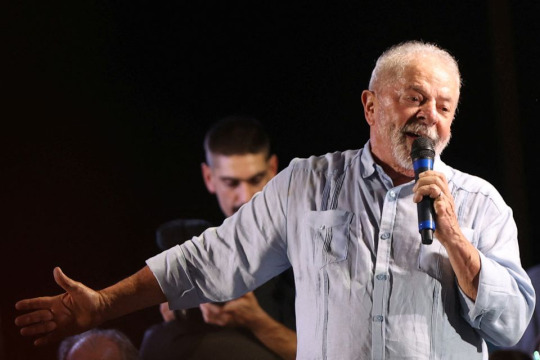
Former Brazilian PresidentLuiz Inacio Lula da Silva, the frontrunner to win an upcoming election, said on Friday that politicians should be prepared to face a climate of violence, a day after a failed assassination attempt targeted Argentina's vice president.
"I think that all of us who are politicians have to be aware of the violence provoked by those who do not know how to live democratically," he said during a news conference before a rally in the northeast of the country.
Continue reading.
#brazil#politics#cristina kirchner#brazilian politics#democracy#brazilian elections#brazilian elections 2022#luiz inacio lula da silva
2 notes
·
View notes
Text
"CARNAVAL é uma herança de várias comemorações realizadas na Antiguidade por povos como os egípcios, hebreus, gregos e romanos. Esses festejos pagãos serviam para celebrar grandes colheitas e principalmente louvar divindades... . É provável que as mais importantes festas ancestrais do Carnaval tenham sido as “saturnais”, realizadas na Roma antiga em exaltação a Saturno, Deus da agricultura. Na época dessa celebração, as escolas fechavam, os escravos eram soltos e os romanos dançavam pelas ruas." - A Origem Pagã do Carnaval, Cíntia Cristina da Silva.
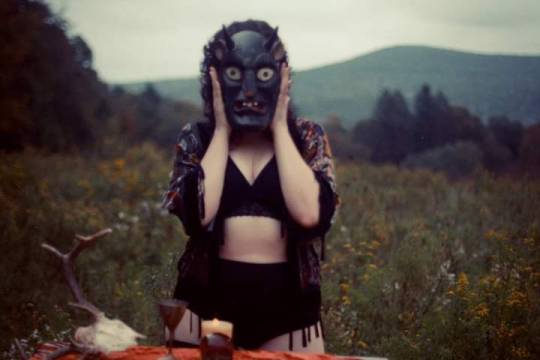
16 notes
·
View notes
Text
Brazilian President Luiz Inácio Lula da Silva, better known as Lula, stepped into his third term ready to rebuild Brazil’s international image, which had been largely diminished by his predecessor. And Lula has a guidebook to follow, not only from his two prior terms, but also from U.S. President Joe Biden’s ascension. From the Jan. 8 riots in Brasília to both countries reentering international organizations, Biden and Lula have fought—and will continue to fight—eerily similar battles.
“Both Lula and Biden are presidents that are positioning themselves as leaders in the democratic world, defending democracy in the region, and with clear priorities on the agenda,” said Bruna Santos, director of the Brazil Institute at the Wilson Center.
During his first two terms as president, between 2003 and 2010, Lula set Brazil up as a major economic and political player on the world stage. Lula was a founding member of BRICS—a geopolitical bloc including Brazil, Russia, India, China, and South Africa—and attended its first formal summit in 2009, and Brazil was one of the leading voices calling for U.N. Security Council expansion during the Lula administration. Brazil’s relationships with its neighbors had never been better, with a wave of Lula allies elected into office throughout the region, including Cristina Fernández de Kirchner in Argentina, Evo Morales in Bolivia, and Hugo Chávez in Venezuela.
But things may not be so straightforward this time around. Despite the recent wave of leftist governments echoing the political tides of the early 2000s, instability has rocked Latin America in recent years, with worsening situations in Nicaragua and Venezuela, violent protests in Peru, and the devastating economic and social impacts of the coronavirus pandemic. The new “pink tide” will be far more turbulent than the first.
“It’s very early on to see how successful he’s going to be, but it’s not going to be the easy ride he had on the first pink tide, when everyone was on better terms,” said Cecilia Tornaghi, the senior director of policy at Americas Society/Council of the Americas.
Deep political polarization was laid bare in two of the Western Hemisphere’s largest democracies during the violent Jan. 6, 2021, insurrection in Washington and the Jan. 8, 2023, riots in Brasília. For both Biden and Lula, who each began their time in office amid the wreckage of stormed government buildings, this became an opportunity for further cooperation on strengthening democratic institutions. The United States will be hosting the second Summit for Democracy this month, which is focused on developing an agenda for democratic renewal, which Lula welcomed in his meeting with Biden in February.
“It’s a very positive initiative on the part of both to recognize the similarities and the threats to democracy, and their willingness to cooperate,” said James Green, a professor of Latin American history and Brazilian studies at Brown University. “It’s still to be determined how that will actually play out in practice.”
But Lula’s image is also not the same as it once was. Lula was handed a 12-year jail sentence for a massive corruption scandal that took place during his first two terms in office. Although the sentence was short-lived and Lula maintains his innocence, the baggage of jail time has become a major point of concern for leaders who may not want to be associated with Lula’s past scandals.
“All the people that see him as a criminal or a former criminal will continue to,” Tornaghi said. “There’s nothing he can say that will change their views, so he doesn’t even try.”
Former U.S. President Donald Trump and former Brazilian President Jair Bolsonaro turned their respective countries into pariahs on the international stage, causing tension with neighbors and turning their backs on multilateral organizations that did not flatter their nationalistic approaches to governing. If Bolsonaro and Trump were often compared while in office, what they left behind is also similar.
Both Bolsonaro and Trump threatened to withdraw from the World Health Organization at the height of the coronavirus pandemic, touting anti-COVID conspiracy theories and discouraging mask use. U.S. and Brazilian standing on the world stage suffered under the two leaders, with Trump and Bolsonaro ignoring—and sometimes railing against—climate issues. Bolsonaro’s threats to withdraw from the Paris climate accord followed Trump’s official withdrawal from the agreement in 2020, citing his “America First” policy.
One of Biden’s first acts as president was to re-enter the Paris Agreement, signaling U.S. commitment to environmental policies and a return to international engagement. Climate change, too, has been at the heart of Lula’s international strategy. Lula visited Washington in his first trip outside of Latin America in early February, following which Lula signaled that the United States is expected to join the Brazilian Development Bank-led Amazon Fund, which raises and directs investments to prevent and combat deforestation in the Amazon.
“I think President Lula is prioritizing the right thing that can be the hook for the international community to work with Lula and to bring back Brazil as a leader in global affairs,” said Valentina Sader, Brazil lead at the Atlantic Council. “And that angle is climate.”
Brazil is home to 60 percent of the Amazon rainforest. The Amazon is a crucial carbon sink, which helps regulate both local and global climate. Under Bolsonaro, deforestation reached a record high, sparking concerns that the forest would never recover from the accelerating large-scale deforestation.
Within the region, Bolsonaro’s withdrawal from the Community of Latin American and Caribbean States (CELAC), despite Brazil’s historic leadership in the organization, over criticism of leftist authoritarian countries within the organization, including Cuba, Nicaragua, and Venezuela, further isolated Brazil.
Lula has already taken a different approach, showing his willingness to engage with its traditional allies, strengthen cooperation in the region, and keep the door open to bring leaders such as Venezuela’s Nicolás Maduro to the table.
“Lula is being Lula,” Tornaghi said. “What was the first thing he did? He went to CELAC in Argentina. He was celebrated like a rockstar in Argentina—concerts and everything, in his honor. Then he went to Uruguay, a center-right country, and had a great conversation with President Lacalle Pou.”
Santos also believes, given his strong democratic and diplomatic record, that “Lula might be an important moderator in the region when it comes to coordinating and moderating conversations with Venezuela and Nicaragua.”
“Brazil has a clear path in foreign policy that went a little bit off track with Bolsonaro,” Santos said. “But there is a path of valuing multilateral organizations, regional dialogue, and finding diplomatic solutions for peace. Those are important values for Brazil’s foreign policy.”
That was reflected in Lula’s statements on the Russia-Ukraine war. He expressed his desire for a peaceful end to the conflict and has left the door open to a meeting with Russian President Vladimir Putin—much to the chagrin of Western leaders who are trying to ratchet up military support for Ukraine from the so-called global south.
“Brazil and Brazilian diplomacy tends to not take a side unless they absolutely have to,” Sader said. “The approach that the Lula administration is taking—and Bolsonaro had this kind of approach as well—is that we defend and want peace, but that needs to be done through diplomatic means.”
Trade is another area where Lula can mark a contrast to Bolsonaro. Brazil is one of the biggest forces inside the Mercosur trading bloc, which also includes Argentina, Paraguay, and Uruguay. Since 2019, the bloc’s Association Agreement with the European Union has been pending, and ratification is one of Lula’s foreign-policy priorities. After a 20-plus-year process, ratification must take place in both Europe and Mercosur member states to finally come into force. Despite holdouts like France, Lula’s Amazon-friendly stance may make ratification easier. Ratification has also taken on new urgency after Lula floated the idea of an agreement with South America’s largest trading partner, China, an attempt to soothe the rift among Mercosur leaders after Uruguay toyed with a bilateral deal with Beijing.
“Mercosur and the EU treaty are definitely the low-hanging fruit that he can show his chops on,” Tornaghi said.
But in order to achieve his objectives within Latin America, Lula will have to reckon not only with his own baggage and the debris left by the Bolsonaro administration, but with Brazil’s complicated role in Latin America as well. Many of its neighbors are wary of being engulfed by Brazil due to its massive territory, economy, and geopolitical influence. Linguistic differences have also long set Portuguese-speaking Brazil apart from the rest of the region.
“Brazil needs to reconcile its soft power in the region,” Santos said. “Because of the language and recent history of our foreign policy in the region, we have to get that back on track and establish clearly that we are prioritizing the relationship of democratic nations that are committed to sustainable development in the Americas.”
5 notes
·
View notes
